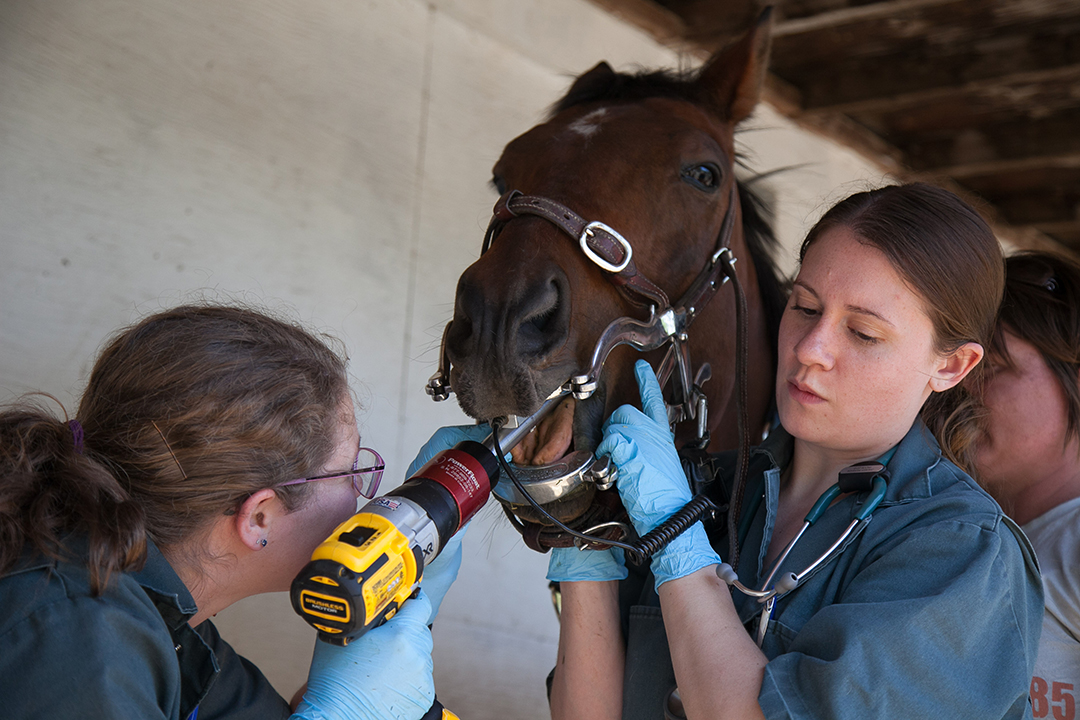Owning a horse is a rewarding experience that comes with unique responsibilities, including ensuring their dental health is well-maintained. Horse dental care at home is a vital aspect of equine management that every horse owner should prioritize. Proper dental care not only enhances a horse’s quality of life but also ensures they perform at their best. In this article, we’ll explore the importance of horse dental care at home and provide practical tips on how to maintain your horse’s dental health.

Understanding Equine Dental Health
Horses have a unique dental structure that requires regular attention. Their teeth continue to grow throughout their life, which can lead to dental issues if not properly managed. Understanding the basics of equine dental health is the first step in providing effective care.
The Anatomy of a Horse’s Mouth
A horse’s mouth comprises incisors, premolars, and molars, each serving a specific function. The continuous growth of these teeth requires natural wear through chewing. Without adequate wear, dental problems such as sharp edges or uneven surfaces can develop.
Common Dental Issues in Horses
Some common dental problems in horses include hooks, ramps, and wave complexes. These issues can cause discomfort and difficulty in chewing, leading to weight loss and poor performance. Regular checks can help in identifying and addressing these problems early.
Benefits of Regular Dental Care
Regular dental care is crucial for several reasons. It prevents the development of painful dental conditions, ensures efficient digestion, and enhances a horse’s overall health and performance.
Improved Digestion and Nutrition
A healthy mouth ensures that a horse can chew its food thoroughly, facilitating better digestion and nutrient absorption. This leads to improved health and vitality.
Enhanced Performance and Behavior
Horses with healthy teeth are more comfortable and willing to perform. Dental issues can lead to behavioral problems such as head tossing and reluctance to accept the bit.
Steps for Effective Horse Dental Care at Home
While professional equine dentists play a crucial role in maintaining dental health, there are steps you can take at home to support their work.
Regular Inspection
Regularly inspect your horse’s mouth for any signs of dental issues such as bad breath, drooling, or difficulty eating. These can be indicators of underlying problems that need attention.
Proper Feeding Practices
Ensure your horse has access to a balanced diet that promotes natural tooth wear. Incorporate fibrous foods such as hay, which help in maintaining dental health.
Maintaining a Routine
Establish a regular dental care routine that includes professional check-ups and at-home inspections. Consistency is key to preventing dental issues.
When to Seek Professional Help
While at-home care is essential, there are times when professional intervention is necessary. Signs that indicate the need for a professional dental examination include weight loss, excessive drooling, and difficulty in eating.
Consulting with a professional not only addresses current issues but also helps in formulating a preventative care plan tailored to your horse’s specific needs. For more detailed insights on horse dental hygiene and care, visit ProHorseWorld.
Conclusion
Ensuring your horse’s dental health is an ongoing process that requires dedication and knowledge. By understanding the importance of horse dental care at home and implementing effective practices, you can ensure your horse remains healthy and happy. Regular inspections, proper feeding, and professional consultations are key components of a comprehensive dental care routine.
For more information on equine dental care, you can check out resources like BW Equine Vets.

FAQ
Why is horse dental care important?
Horse dental care is crucial for maintaining their overall health, ensuring proper nutrition, and preventing behavioral issues related to dental discomfort.
How often should I inspect my horse’s teeth?
Regular inspections should be part of your routine, ideally every few weeks, to catch any issues early. Professional check-ups are recommended at least once a year.
What are signs of dental problems in horses?
Signs include bad breath, drooling, difficulty eating, weight loss, and behavioral changes such as head tossing. If you notice any of these signs, consult a professional.
This article contains affiliate links. We may earn a commission at no extra cost to you.
